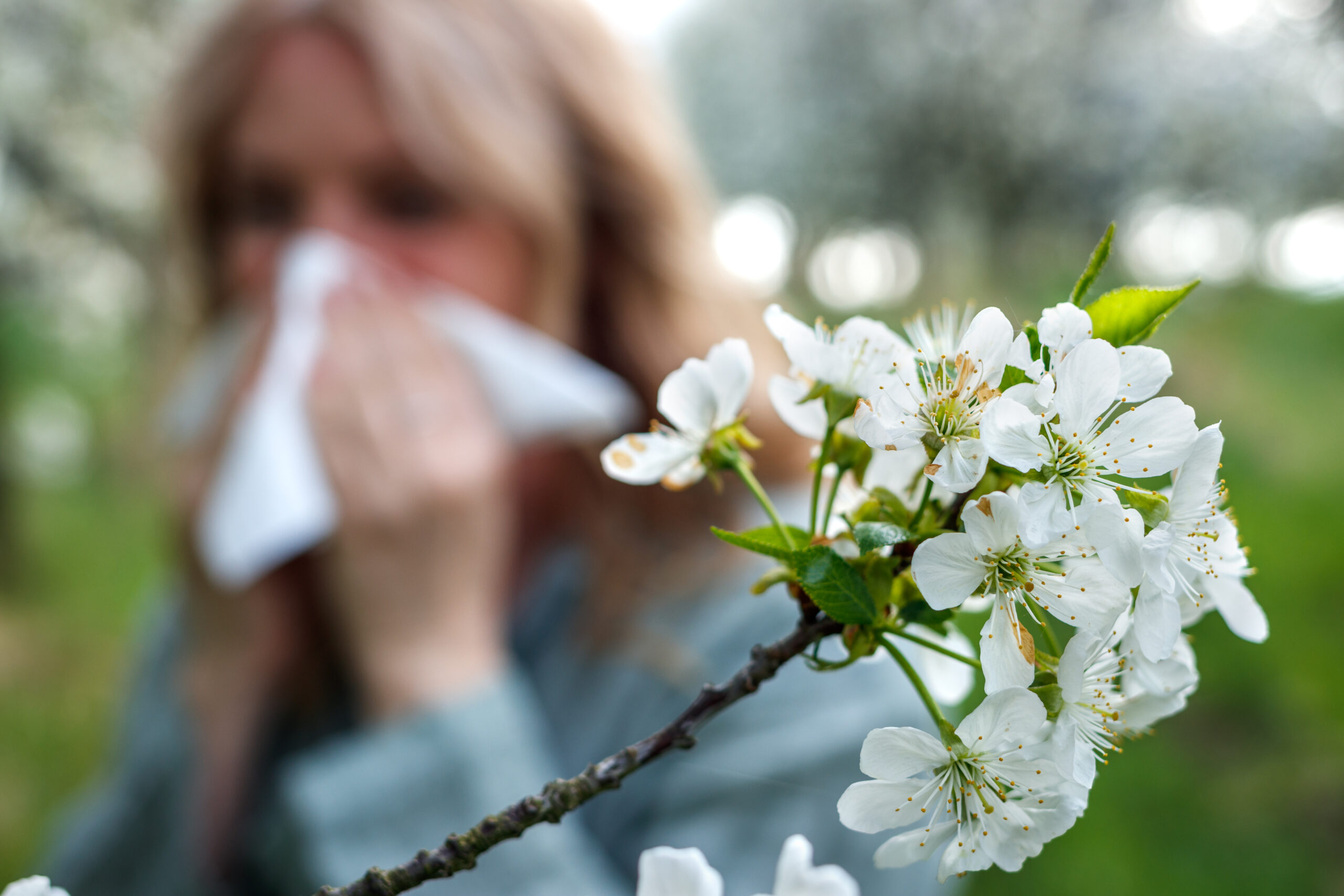Tennessee is one of the most challenging states for people with seasonal allergies.
The main culprit? Pollen. The sneezing and sniffling you may be experiencing likely comes from pollen that floats through the air, leaves a fine coat on your car, and clings to your clothes and hair.
WellTuned spoke with Dr. Audrey Atkins, a medical director for BlueCross BlueShield of Tennessee, to learn about seasonal allergies and how to address them.
Why Tennessee is so infamous for seasonal allergies
Dr. Atkins: Memphis made the Asthma and Allergy Foundation of America’s 2025 list of the top 10 most challenging places to live with seasonal allergies. But living in many other parts of the Volunteer State can be tough, too.
Part of what makes Tennessee beautiful is its variety of flowers and trees, as well as a mild climate most of the year. Unfortunately, this also makes it a perfect haven for many allergen triggers to grow. Allergy symptoms occur when your immune system reacts to those foreign substances.
Not only that, but allergies can be a problem year-round in Tennessee.
- Spring: This is the time for tree allergies, such as oak, willow, maple, hickory, cedar, etc.
- Summer: This season brings grass allergies, such as Bermuda, timothy, orchard and fescue.
- Fall: Autumn brings weed allergies, like ragweed and wormwood.
- Winter: You can still have allergic symptoms in winter due to indoor allergens such as dust mites, mold and pet dander.
How to get relief for allergies
Dr. Atkins: First, there’s good news. You don’t have to move from Tennessee to get relief from your allergies.
There are a variety of medications that may help reduce symptoms. The most common over-the-counter options include:
- Oral antihistamines, such as cetirizine, fexofenadine and loratadine, can help with sneezing, itchy watery eyes, and stuffy or runny nose.
- Corticosteroid nasal spray, such as triamcinolone and fluticasone can address a stuffy or runny nose.
- Oral decongestants, such as loratadine and pseudoephedrine can also help with stuffiness.
- Nasal saline can come in a spray or gel and can help clear pollen and open nasal passages.
Before heading to the drugstore, talk with your doctor to make sure you get the right medication for you and to avoid taking anything that might cause an interaction with other medication you’re taking. Plus, be mindful of potential side effects.
Unfortunately, allergens can trigger asthma attacks, too. So, if you have asthma, talk with your doctor about the best way to manage your asthma and your allergies.
Other tips for coping with seasonal allergies
Dr. Atkins: There are also non-medicinal strategies to reduce discomfort from seasonal allergies:
Monitor pollen counts: Check the local pollen counts so you can plan your activities accordingly.
Reduce your exposure: If you know what triggers your itchy, watery eyes and runny nose, try to avoid it as much as possible. You might need to stay indoors (or at least avoid yard work) on days when the pollen count is high. You could also wear a face mask if you have to spend time outdoors.
Wash the pollen off: Imagine sleeping with a haze of pollen around you. Take a shower before bed to wash the pollen off your skin and hair.
Keep the windows closed: Run the air conditioner to keep your home cool. You might also consider using an air purifier.
Clean the house: Use a vacuum with a high-efficiency particulate air (HEPA) filter.
“Someday, we may learn how to prevent the development of seasonal allergies,” says Dr. Atkins. “But in the meantime, these tips can help make living with seasonal allergies much easier.”
More from Dr. Atkins on WellTuned
Get more information about specific health terms, topics and conditions to better manage your health on bcbst.com. BlueCross BlueShield of Tennessee members can access wellness-related discounts on fitness products, gym memberships, healthy eating and more through Blue365®. BCBST members can also find tools and resources to help improve health and well-being by logging into BlueAccess and going to the Managing Your Health tab.


